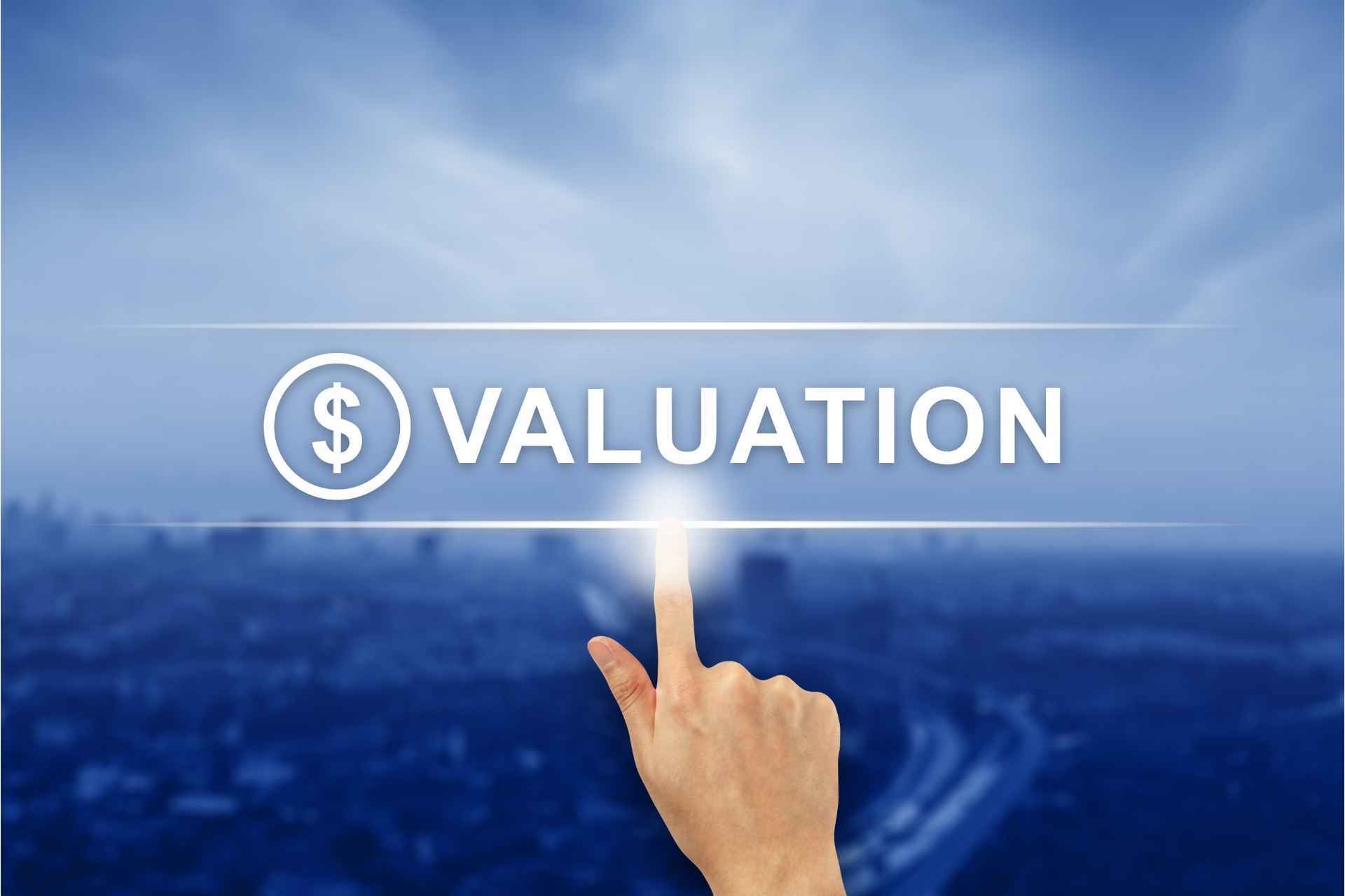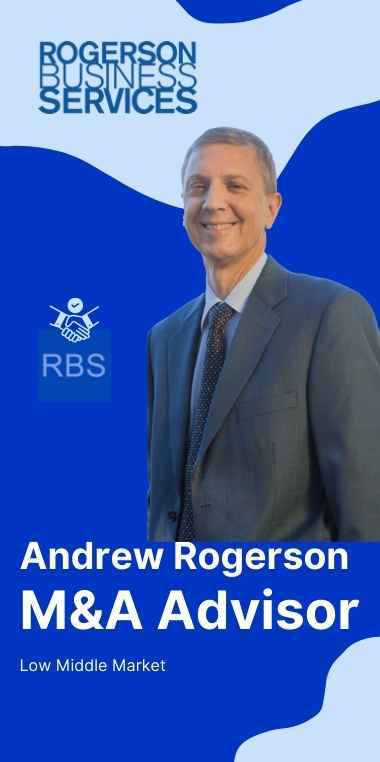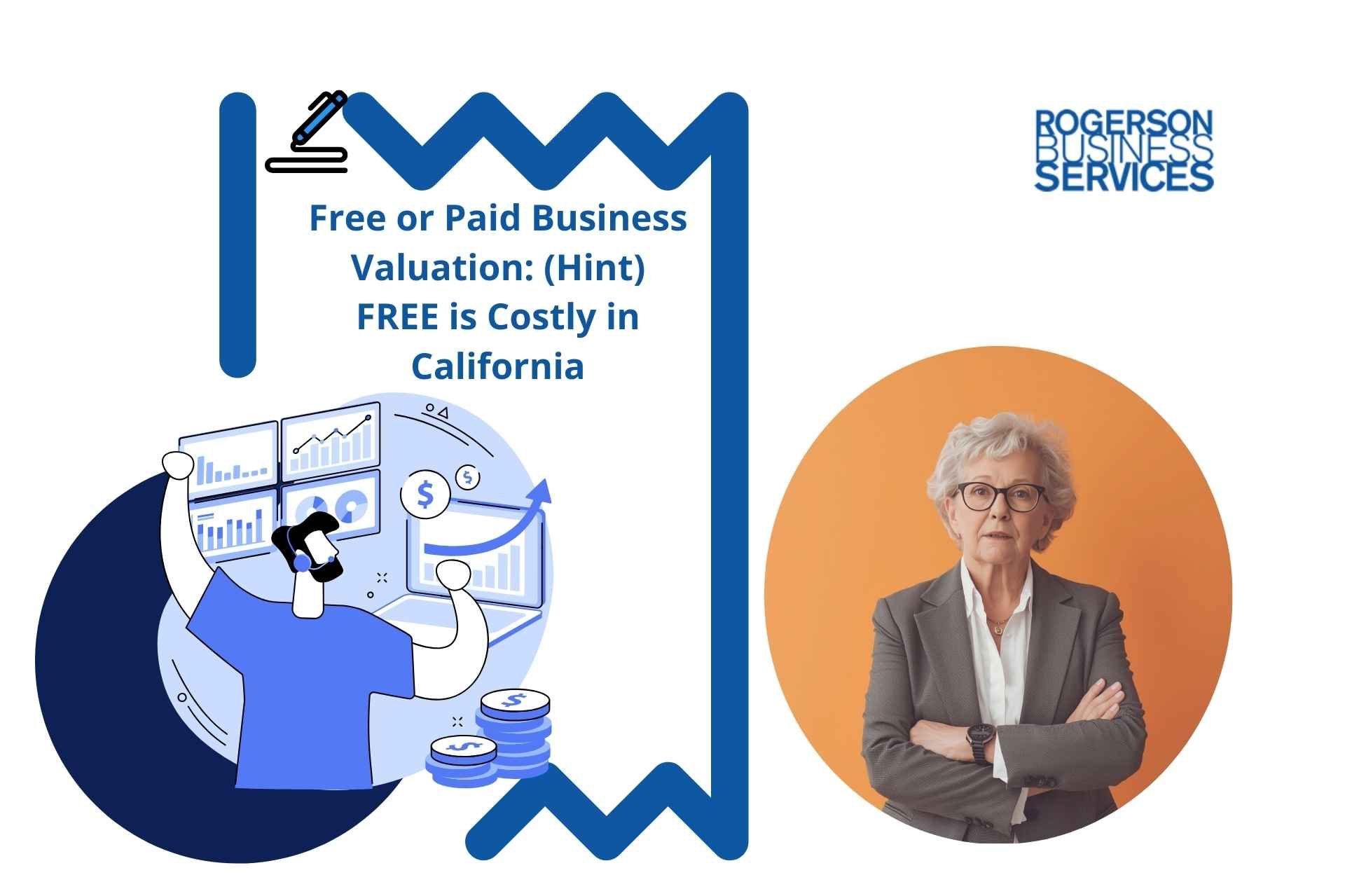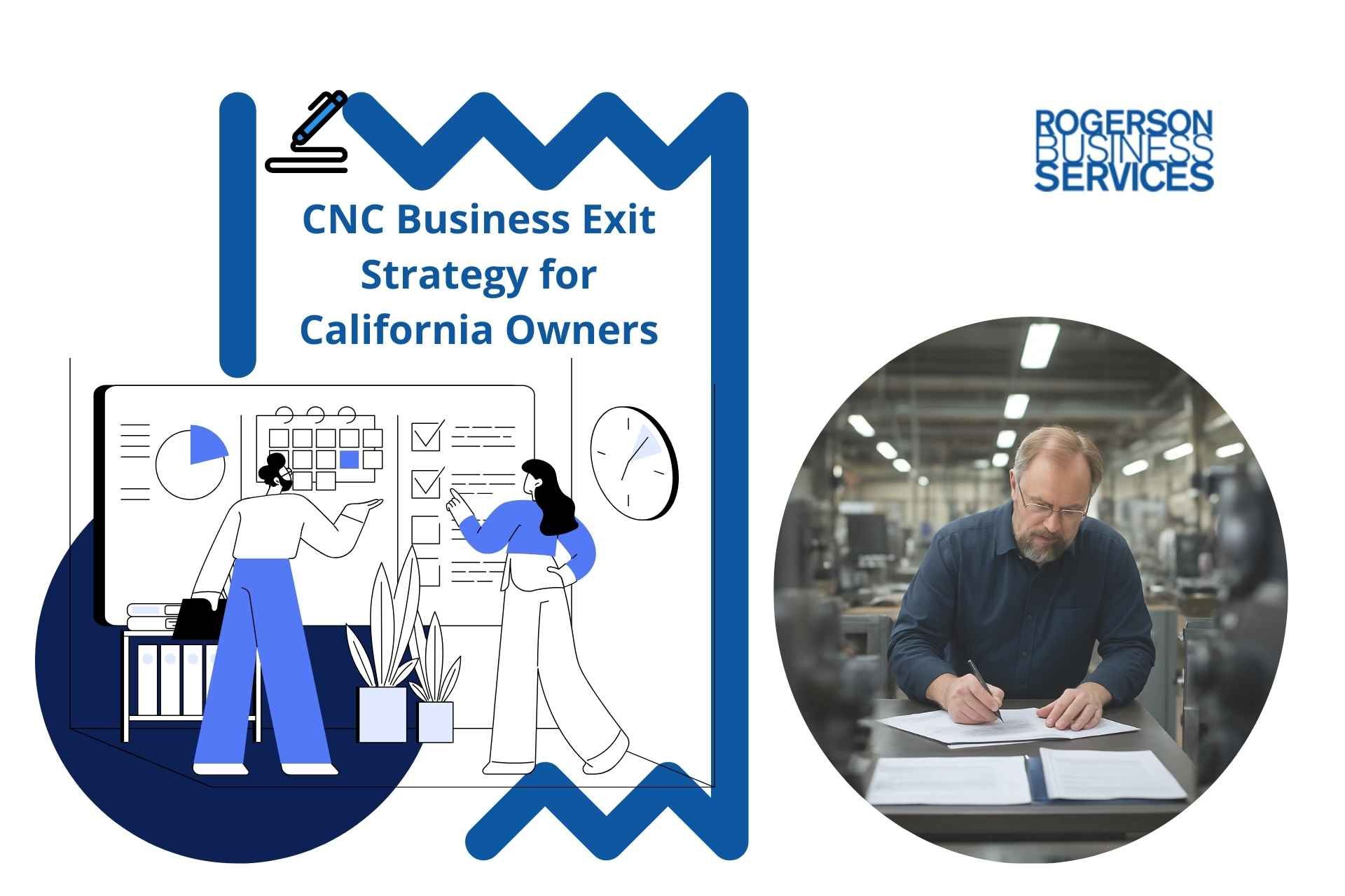The Ultimate Guide to Help Exit a Consumer Products Company
Considering an exit strategy from your lower middle-market consumer products company in California can be overwhelming. Without a proper, well prepared, exit plan, and an intermediary or professional business M&A Advisor to facilitate the process, there is no way to guarantee that you made the right decision.
Get The Guide
M&A Guide
Increase Your Chance Of Success!
Guide to Help Exit a Consumer Products Company
Everything you need, all in this business exit strategy simple guide
Exit Strategy for Consumer Products Company
You've worked hard growing your consumer products industry company, and now it's time to explore an exit strategy. If you're asking questions like "I want to sell my business, where do I start?" here are the things you need to know.
Whether you are retiring or simply prepared to move on and pursue even greater passions, listing your business for sale is a life-changing event. Choosing the best business exit strategy framework requires careful due diligence. We're here to help you through this life transition, but first, what is an exit strategy?
A business owner exit strategy is a plan for transitioning ownership of a company to a new owner, typically another company, investor, or group of investors. The goal of business exit strategy planning is to maximize value for the acquirer while also benefiting you, the initial business investor.
Many exit strategies for businesses exist today, such as selling the company to a strategic buyer, taking the company public via an Initial Public Offering (IPO), or selling it to your management team.
As market conditions fluctuate, generating maximum value for your team and the future business owner becomes increasingly crucial as you approach an exit. Let's explore some critical reasons why consumer products companies must develop an excellent exit strategy.

Top Reasons to Consider an Exit Strategy
Well-defined exit strategies for businesses ensure business goals are aligned from start to finish.
An exit strategy entails a carefully mapped plan to achieve your business goals. It's baked into your company's vision and mission. For these reasons, having a clear exit strategy maximizes the value you ultimately glean from all of your hard work.
Below are even more benefits to establishing a clearly-defined exit strategy:
Reduce Tax Burdens for Your Buyer
Ensure that your exit strategy helps to reduce any taxes that may be inherited by the company acquirers. Carefully assess all tax implications when developing your exit strategy, considering all of the alternatives available with a qualified professional so that you choose the most cost-effective solution.
Tax laws often shift, so be sure to prepare your company every step of the way not to miss any important dates.
Smoother Transition
Show your potential buyers that the transition will be frictionless. People are short on time and money, so make your buyer's life more comfortable with an exit strategy that lays out every step of the transition.
During a transition, some employees may leave the company or lose their jobs, damaging the company's performance.
To combat that scenario: your exit strategy should carefully explain the responsibilities and shareholdings of your inquirer. It'll help the new company leaders secure top people for any open positions or pave the way for a board of trustees to manage the company.
Good Timing
Good exit planning means having a plan in place so if the right offer comes along, you are ready to sell. Its all part of the mantra - Always run your business as if it is for sale.
A clearly-defined exit strategy will ensure that you are able to exit your business on your terms and hopefully when the market conditions are ideal.
Cushioning a Health or Family Crisis
Life happens. Sometimes company owners get sick or injured, or there is a divorce or sudden death in an owner's family. Dealing with these unforeseen circumstances can affect your company in unexpected ways, so your exit strategy must reflect a plan to take care of these situations.
Even in the worst of times, companies with robust exit plans have better chances of staying afloat and undergoing a smooth transition to new owners.
Navigating an Economic Recession
Economic cycles appear to be accelerating, with more volatile movements and more significant unknowns with each wave. Your exit strategy should account for these cycles.
Business Valuation
What is it? Why do I need one if I'm planning to exit a business? What is the business worth?
How to Sell a Business
How much can I sell my business for, you ask? You can almost always sell any business for a fair market price as long as there's something attractive about the company. Location can be an appealing factor, so even if the business isn't profitable, buyers may be interested. However, there's a lot more to selling a business than just the price.
Selling your business is complex and requires many considerations. Below are some factors you'll want to be aware of when selling consumer products companies, and particularly when you're looking at mid-market companies for sale.
Preparing to Sell a Business - Consumer Products Sector
There are several initial questions the owner(s) must answer: What are the potential business earnings? What am I going to do with the proceeds of the sale? Are all owners onboard about selling the consumer products business?
You would benefit from answering those questions to determine whether the sale makes economic sense. CPG companies are numerous and widespread, but some of them are much easier to sell than others.
Learn how to plan an exit for your consumer products company
Sell-Side M&A
Four step process to market your California lower middle market business for sale
01 Exit Plan - business valuation
Your potential buyers can come from many areas. Employees, individual and group investors, Private Equity Groups, and even competitors who may have an interest in purchasing your business. If a competitor is interested, you don't want to reveal too much information about your business, especially anything that could hurt your business if the deal falls through.
Once you decide to sell, get your business ready, and get help from a trusted and accredited California M&A Advisor.
An M&A Advisor will vet potential buyers to make sure they are qualified and are serious about purchasing your business.
A California Licensed M&A Advisor knows the ins and outs of selling a California business and can help you get your business in shape to get you the best deal.
02 Buyer Analysis
One of the first things your M&A Advisor will do, is help you to create an exit plan. An M&A Advisor knows exactly how to plan an M&A exit strategy. In fact, you might get a M&A Advisor to help you with an exit plan long before you're ready to sell your California company.
An M&A Advisor is knowledgeable about how to calculate the value of a business to sell and will aim to get the highest value for your business. Once everything is ready to go, they'll list your business for sale. An M&A Advisor will be an expert at listing a California businesses for sale.
After your business is listed, the M&A Advisor will handle all the marketing of your business to promote deal origination and get you in front of potential buyers. They'll also set a buyer list and work with you to figure out who to go after for the best value.
03 Deal Origination - marketing
An M&A Advisor will then work to get you as many qualified and motivated buyers of your business as possible.
They will market your business through the proper channels, including social selling and targeting and generating interest. They'll vet and follow up with interested buyers whether off-market or publicly listed.
Once the offers come in, your M&A Advisor will evaluate all offers and conduct market offer analysis to make sure you're getting the best deal.
04 Negotiation & Closing
Buyer Due Diligence
Once a buyer is performing their own due diligence, the M&A Advisor will help you navigate the process to make sure everything is running smoothly. They'll negotiate a Letter Of Intent between you and the buyer to lay out the proposed aspects of the deal. Your M&A Advisor will also help you gather all of the necessary paperwork discussed above. If the buyer asks for additional documentation, your M&A Advisor can help guide you.
As a buyer is going through the due diligence process, they will be on the lookout for red flags about your business. An experienced M&A Advisor is knowledgeable about these warning signs and can help you prevent them. Red flags may include refusing to disclose why you're selling, not allowing time to conduct due diligence, refusal to introduce the buyer to employees, suppliers, landlords, and more.
Definitive Purchase Agreement
The M&A Advisor will oversee the Definitive Purchase Agreement with the help of the transaction attorneys to make sure both parties are happy with the terms. A Definitive Purchase Agreement protects both you and the buyer as it will clearly state exactly what is and is not being sold. It can also protect the buyer from certain liabilities. A Definitive Purchase Agreement will also help you deal with the legal complexities of selling a California lower middle market business.
Once the Definitive Purchase Agreement is finalized, the M&A Advisor will help with any final items that need to be done as part of the closing process including working with a California Licensed Escrow company.
Closing - Finalize the Transaction and Close the Deal
Finally, your M&A Advisor will help prepare the close of your transaction. Once the closing is complete, they'll assist with overseeing the transition of the business change of ownership.

Types of Consumer Products Industry Companies
Consumer products companies manufacture and sell products such as food, clothing, and electronics and operate in an extremely competitive industry where consumer preferences evolve rapidly.
Below is a list of some types of consumer products mid-market companies for sale may cover. Consumer retail M&A deals are particularly popular in densely-populated areas, where the sheer number of potential customers helps improve the chances of success.
Agricultural Products
Agricultural products businesses often involve buyouts by competitors eager to take advantage of an existing market. Also, an agribusiness for sale probably has a very large storefront. That limits the types of buyers who will be interested.
Apparel, Accessories, and Luxury Goods
This category includes specialty locations like an online clothing business for sale, where it may be closer to a warehouse than a traditional storefront. With an online business for sale, clothing stored inside the warehouse is usually easy to get rid of and replace with new products.
Wholesale custom clothing manufacturers often have a harder time selling inventory, even at low prices. Clothing manufacturers for sale often focus more on the location than their products. Similarly, clothing companies for sale may have high-value clients that won't stick around.
Auto Parts & Accessories
A car parts business for sale in California may have a large network of existing buyers. A car accessories business for sale often has a lot of high-value inventory, so disposing of it without selling it can be complicated.
An auto parts business for sale may have a nearby warehouse that's off-site, so changing the lease for that may be part of the sales arrangement. This is particularly likely when dealing with an auto parts business for sale.
However, despite the specialty inventory, listing an auto parts distribution business for sale isn't fundamentally more complicated than selling most other types of businesses. An auto upholstery business for sale may be much harder to sell to a competitor.
Brewers
Microbreweries for sale in California are a highly specialized business as each brewery tries to target a different consumer with its taste and marketing demographic. They are also have assets with a high value and take many years to generate a positive cashflow.
Some brewers have a close association with wineries for complementary sales. The same holds true for related businesses, like any liquor wholesale business for sale.
Distillers and Vintners
Do you have a boutique winery for sale? Wineries for sale in California may face unique challenges.
Similarly, vineyards for sale in California can attract eager and experienced buyers, especially if you have a valued location. California vineyards for sale may even attract buyers from overseas. This is particularly true if they also have attached wine businesses for sale.
If you have an online wine business for sale, any rare or unusual vintages you have in stock can help attract buyers eager for rare products. Companies that focus on stocking rare products, like a wine import business for sale or a wine distributor for sale, are particularly valuable.
Footwear
Selling these is somewhat easier than selling some other types of companies because the inventory is fundamentally straightforward, although it gets more complicated if you're running a specialist shop.
Every shoe business for sale is a little different, so that affects what sort of buyers you can anticipate.
Home Furnishings
Home furnishing stores are a must-have in most regions. Selling these businesses may involve completely changing the inventory, which necessitates a strong disposal strategy.
Many home furnishing stores buy from overseas, so an importing business for sale may receive a higher or lower valuation depending on the quality of products involved.
This category includes any mattress business for sale. Remember that the market can only support so many of these, so it's usually easier to sell excess stock to other mattress stores.
On a related note, an office furniture business for sale may have plenty of existing customers who want buyers to keep the same stock, so these can be easy sales.
Homebuilding
Homebuilding companies that focus on consumer products are fundamentally supply stores. It's often easier to sell them for the location than to a competitor.
Household Appliances
Household appliance stores are a must-have for most regions. These often sell to competitors. Expect to hold clearance sales.
Household Products
Household product stores are fundamentally similar to most consumer products stores. This makes them relatively easy to sell.
Housewares & Specialties
These are similar to household products stores but usually cater more towards fine dining and one-time essentials rather than consumable products. They're largely the same as selling a household products store but may require creative strategies to dispose of old inventory.
Leisure Products
Leisure products are almost always specialty stores. It can be hard to dispose of this type of specialized inventory, so it's often easier to sell to a competitor.
Packaged Foods & Meats
Food stores, such as these, are easier to sell than most of their competitors. Existing stock can be discounted or even given to charities.
Soft Drinks
Stores that specialize in soft drinks are rare. They often sell to different industries, and with minimal equipment to worry about, disposal is easy.
Related companies, including a beverage distributor for sale, are often more valuable than soft drink stores and, therefore, easier to sell.
Tires & Rubber
Tire stores are specialty stores that usually occupy areas with high vehicle traffic. This makes selling them to competitors fairly easy. Each tire store likes to sell certain brands, so they may want to dispose of some or all of the inventory.
Tobacco
Tobacco stores are a classic specialty store situation. Most of them exist alongside other well-trafficked destinations, so selling to other industries is easy.
Due Diligence Checklist for Selling a Business
Owners looking to sell their company may fail without looking at the business with how the buyer performing their due diligence will see it. Due diligence is a deep analysis including legal, financial, and business operations of a company preparing to sell a business.
Selling a company also means passing along its staff, legal advisors, and potential hidden liabilities. Due diligence helps management spot
'bumps in the road'
towards the final sale, such as the buyer discounting the business for reasons such as missing records or incomplete contracts.
- Does the business have all critical documents about its operation readily accessible?
You'll need formation and incorporation documents, shareholder certificates, operating agreements, current board minutes, and ledgers. The company will also need financial records, such as balance sheets, income statements, annual reviewed or audited reports, and documents concerning pending litigation or other legal matters.
Due diligence must also include customer and employment contracts, supply agreements, insurance policies, consulting, advertising, and marketing agreements. Include intellectual property documentation as well, such as copyrights, trademarks, and patents.
Selling a business is often easier if buyers believe it offers plenty of room for growth through mergers and acquisitions, so proving its value is often the best way to help close the deal.
Similarly, does the business have:
- A sound data system to produce recent financial statements?
- Payroll registers?
- Enrollment information?
- Invoicing information?
- Customer lists?
- Any industry-specific material?
Your data should be secure in the event of a crisis, human error, and the company's ultimate sale. Ensure that you have a document backup plan and automate the backup process. Test your backups often, revise when necessary, and
utilize cloud storage
for off-site copies of your data.
2. What are the essential income statement adjustments needed to
calculate the EBITDA of the consumer goods business?
Understanding your Earnings Before Income Tax, Depreciation, and Amortization (EBITDA) is crucial for determining your consumer products business's value. The final figure reflects a business's operating profitability, which is vital for comparing different companies for sale.
3.What might be the tax consequences of the sale under different price scenarios?
An advisor can be of enormous help
when performing due diligence.
Rogerson Business Services in the lower middle market M&A segment
routinely reviews contracts, licenses, and various corporate documents to assess any factor that may slow down the business sale.
When asking questions like "If I sell my business, how much tax will I pay?" the critical thing to remember is that it's impossible to predict this until we know things like the final sale price. In general, the greater your profit, the more tax you'll pay. Minimal profit can reduce your tax burden.
Free Business Valuation Guide
Learn more about business valuation and why it matters the most while planning an M&A exit strategy.
Business Valuation - What is It Worth?
Geography and strategic importance to your acquirer will affect your company's valuation. Below are several ways to determine the market value of your business:
- Determine the value of all company assets
Find out the total value of everything your company owns, including equipment and inventory, and subtract liabilities and debts.
2. Formulate a discounted cash-flow analysis
A "net present value" calculation entails using your business's annual cash flow to project it into the future with a discount value of future cash flow compared to today.
3. Utilize earnings multiples
A multiple of the company's earnings or the price-to-earnings ratio (P/E) estimates its earnings over the next several years.
4. Base your value on revenue
An M&A Broker can calculate how much your business generates in annual sales. The broken can then determine the value of a company like yours within your industry, based on a certain sales level.
Factors Affecting Business Valuation
To avoid overvaluing or undervaluing your most precious asset and ensuring you prepare for an exit, you must consider several factors that affect your business's valuation.
- Know your reasons for selling: Aim to give yourself as much time as possible to negotiate before a sale.
- Earnings Before Interest and Tax (EBIT): Your acquirer will need to know your company's EBIT.
- Deal Structure: Aim to be flexible for the buyer. For example, a stock sale may save you in capital gains taxes, but an asset sale may reduce your buyer's income tax.
- The Size of your Company: Small businesses may seem riskier to buyers than larger, more established companies.
- Age of the business: Longevity indicates resilience and future staying power. Buyers love to see potential, but a healthy track record is often a greater preference.
- The types of assets in your company: Assets in a clothing manufacturing business will have different uses and valuations than assets of a pure e-commerce business. It's easier to value physical assets such as buildings and machinery than to evaluate intellectual property.
- Cost of access to capital: When market interest rates are low, investors borrow more. Low-interest rates likely mean more potential buyers, and it will be easier for you to bargain. Middle market M&A Brokers can help value this factor for you.
- Projected cash flow and future performance: Your company's past performance can demonstrate financial stability. However, future performance is an equally important measure of your company's real value.
- Know which industry you're in: Each industry comes with its own set of valuation measures. Knowing whether your sector is booming or struggling will help you determine the value of your company.
- Consider any intangibles: Consider any subjective factors affecting your company valuation. Find out how critical your company is to a potential acquirer, determine your employees' value, and know the price behind your company's intellectual property, brand, and trademark.
What Is the Role of M&A Brokers in Selling a Consumer Goods Business?
Selling your business on your own may be a mistake. Using a lower middle market M&A Broker ensures that you understand your company's real value and the best ways to face any obstacles between you and the right exit.
M&A Brokers can help you determine what is in your control when evaluating a company. You will want to know the difference between a business broker and an
M&A Advisor
when choosing which agency to work alongside.
Middle-market to
lower-middle market, which makes up most companies sold, are companies with annual revenue above $2 million and below $100 million. Business brokers typically work on smaller-scale transactions with single businesses, such as those in Main Street business for sale market and revenue less than $2 million.
Are you a larger company requiring a complex business merger or sale spanning several locations? M&A Advisors are your best option.
Buyer Analysis - Qualifying Potential Buyers
What can a business aiming for acquisition do to increase their company's end value?
Potential buyers typically include:
Competitors
Competitors are companies in the same industry and want to open up an additional location, sometimes with few or no major changes to their operations.
If your buyer is a competitor, be wary of divulging any sensitive information they could use against you if the deal doesn't follow through.
Competitors are also good choices when you have an established Consumer Products company in California to sell.
Employees
Employees sometimes want to buy a company when the previous owners are ready to sell or retire. Middle-market businesses for sale tend to keep operating well under experienced employees, so this is a good strategy if you want to see the business continue running.
Individual Investors
Individual investors often look to buy businesses and install new management, either because they want to resell the business or see the potential for steady profits.
Private Equity Groups
Private equity groups function similarly to individual investors but often focus more on extracting value from the company. They're often willing to pay a premium for good locations in California.
Family Offices
Family offices are somewhat unique among potential buyers because they have a fixed, long-term plan that usually involves completely changing the location. Otherwise, they function similarly to individual investors.
Strategic, Synergistic, or Corporate Investors
Strategic investors are similar to private equity groups but often have a different type of plan in mind. However, they tend to be well-funded and don't make offers lightly, so they're more reliable than some other types of buyers.
Need help with planning your exit strategy?
Rogerson Business Services (RBS) is an M&A Advisory for lower middle market businesses that is built on trust and ethics. Andrew Rogerson, Certified M&A Advisor, can help you find answers to all your questions, introduce you to better opportunities, and manage the buying and selling consumer products company in California process's integrity while keeping every aspect of sales confidential.

Why Hire an M&A Broker?
An M&A Broker will save you time, stress, money, and reputation. You get to focus on running your business while focusing on improving all business sales facets.
Your M&A Advisor not only assists with the exit plan but all negotiations, business relationships, outreach efforts, buyer screening, and concluding steps of the company sale.
How Can an M&A Advisor Get You the Best Deal?
As you're learning in this guide, an M&A Advisor like Rogerson Business Services will find several ways to benefit you when dealing with mid-market businesses for sale. Your business will sell higher if it's at peak performance. We help you get there promptly.
What Are the Benefits of an M&A Advisor Helping You in the Selling Process?
Getting help from a qualified M&A Advisor can help at many levels, especially if you are in a challenging or unexpected situation requiring you to sell. Some of the benefits of hiring an M&A Broker are the following:
- Focused Process: An M&A Advisor frees up your time so your team can focus on continuing to run the business but be available with managing the company with specific requests through all stages of the transition
- Reduce Stress: An M&A Advisor will take some of the load off your shoulders so that you are not spread too thin.
- Credibility: Proper delegation speaks to you and your company's credibility because it implies that you have built something of value.
- Experience in Your Niche: Professional advice and facilitation from people who understand Mergers and Acquisitions the way you know your business is invaluable.
- Coordinate the Tough Decisions: An M&A Broker will coordinate the activities that may be overwhelming when performed alone or without professional guidance.
- Better Pricing: Your M&A Advisor will formulate an objective valuation of your business and produce a price range you can utilize in the negotiation process.
- Negotiate Like Pros:
An M&A Broker can make negotiations much less stressful. A qualified M&A Broker will have a negotiation strategy in place, so you can successfully navigate uncomfortable or difficult meetings.
M&A Brokers Should Manage All The Following Phases And Activities
Selecting the right M&A Advisor requires a careful evaluation of your options. A M&A Broker will save you time and bring an expertise including a long checklist list of items to help you get the best value in your exit.
Exit Plan - The Best Path to Take to Sell a Business
By now, you can see the advantages of having an exit plan; it's vital for the company owners' financial futures. Reputable lower middle market M&A Brokers always keep exit plans in mind when helping attract offers.
Form the Strategy to Execute
Without a suitable execution strategy, your exit may fail. When deciding how to prepare an exit strategy, keep the following buying and selling a business checklist in mind:
- Prepare your finances for the transition: Have an accurate account of your company's finances.
- Know your options: When you have a clear view of your financial situation, explore different exit strategies like those listed in this guide. A financial advisor may reveal opportunities you could have missed.
- Talk to your investors: Tell your investors and shareholders about your intent to exit. Your strategy should help in advising all parties involved in compensation. An M&A Advisor will make speaking to the public less stressful.
- Find the new leaders: Begin transferring ownership of the business early so that the new administration can take on responsibilities while ironing out and proceeding with the exit plan.
- Inform your employees: Once the exit plan is in motion, carefully consider whether to notify your employees, and answer their questions. An M&A Advisor will help you formulate the best way to approach employees with your decisions.
- Tell your customers: If the business continues under new leadership, introduce the new owner(s) to your clients. If you are closing down the business altogether, offer alternatives to your clients.
Business Valuation - Aim to Get the Highest Value for Your Business.
How much is my business worth?
To find out, you'll need an M&A Advisor that can prepare an accurate value for your company. To do that successfully, they will need a thorough understanding of your company's various assets and liabilities. They can also help you determine how to value a business based on revenue, net income and the adjustments that come with a privately held business.
An effective M&A Advisor can guide companies still several years away from an exit. You may receive help with utilizing
new disruptive technologies
to increase their business value rapidly. They may also help to initiate customer rewards and benefits programs to quickly increase new and repeat customers before approaching your final sale.
Marketing - Promote the business to the right buyer
An effective M&A Advisor will keep the confidential information about the business safe from competitors while still looking for the right buyer.
Buyer List - Create a Buyer Target List.
As part of their strategy to sell your business, your M&A Advisor will work with you to create a prospective list of buyers. This will include obtaining your permission to approach or not, any of the competition of your business.
M&A LOWER MIDDLE MARKET ADVISORY
Why Work With Rogerson Business Services?
Business Valuation
Many sellers neglect the business valuation and methodology early in the process, only to become frustrated after the deal has been finalized. Rogerson Business Services can help you understand the value of your business based on different methodologies.
Legal Due Diligence
When selling a business, the legal standing of the business determines the smoothness, efficiency, and speed at which the transaction is finalized. M&A Advisors offer a sell-side M&A process backed by the viability of a California Licensed business or transaction attorney. With a licensed California M&A Advisor, you can be certain the legal documents involved in the sell-side M&A process is detailed and accurate.
Business Analysis
To avoid wasting time with unqualified buyers, get help from a trusted, licensed, and accredited California M&A Advisor. An M&A Advisor will vet potential buyers to make sure they're legitimate and are serious about purchasing your business. An M&A Advisor knows the ins and outs of selling a lower middle market business and can also help you get your business in shape to get you the best deal.
Financial Due Diligence
Our service includes deal team professionals to assist you. From financial to legal documents to tax and procedures, we want to make sure you are covered.
If you have your own in-house team of advisors, Rogerson Business Services can help make the M&A sell-side process as easy as possible by offering insights that help the team understand and are in alignment with the same goals as yours.
Definitive Purchase Agreement
The Definitive Purchase Agreement is usually extremely complex. It is easy to overlook all the terms and legal jargon, but every paragraph is important and duly considered. It is therefore critical to ask questions and ensure you are comfortable with the final set of legal documents you need to sign.
M&A Sell-Side Targeting
Rogerson Business Services provide Mergers & Acquisition M&A Sell-Side Advisory. We zero target off-market, accretive, private equity and strategic buyers with an interest in lower to middle market companies or businesses to maximize incremental growth value.
Deal Origination - Marketing the Deal
If you find an M&A Advisor specializing in your niche that helps with one of the most challenging part of an M&A's job, sourcing the market of potential buyers. Your M&A Advisor should be adept at deal origination while following these steps:
Outreach Program
Deal origination requires significant outreach, such as pitching to buyers and generating leads. The more comprehensive your network and better your reputation, the better your deal origination will be. Outreach also entails managing relationships with intermediaries such as banks, business partners, attorney's, CPA's and third party lenders.
A successful M&A Advisor will understand all these values and thus make your company as credible as possible to potential buyers. They can also reduce costs through process automation while also delivering measurable
KPIs
(key performance indicators) for your company.
Distribute and Content
Your M&A Advisor will advise you on the best medium for distributing your marketing content.
The best M&A Advisor will go through a list of buyer descriptions with you to find the best groups to target in your marketing campaign.
Evaluation
Your M&A Intermediary will analyze all potential buyers based on a set of conditions that, when met, spell out the best buyer or group of buyers for you to choose your successor.
How Do I Sell My Business Privately?
Selling a business privately is challenging as everything needs to be kept confidential. Use a qualified M&A Advisor to ensure you protect your business and attract the right buyer, and to ensure all of the legal documents and related processes are done correctly including escrow.
Negotiation - Buyer Due diligence
As we discuss in this guide, your M&A Advisor will reduce points of failure in negotiations with potential buyers and the Deal Team members.
Letter of Intent (LOI)
The Letter Of Intent is an initial, non-binding agreement (though some parts are binding) between the parties in a proposed business deal. Your M&A Advisor can ensure your first few encounters with potential buyers go smoothly with a clearly-stated Letter Of Intent.
Conducting Due Diligence
All parties in a deal must practice due diligence, which is a period of time allotted for thoroughly investigating one another and all aspects of the transaction. This includes the critical part of financial due diligence.
To navigate the due diligence period successfully, use a checklist. Elements of due diligence include:
- Income Statements
- Records of Accounts Receivable and Payable
- Balance Sheets and Tax Returns (including business activity statements for the last 3-5 years)
- Profit and Loss Records (for the last 2-3 years)
- Cash Deposit and Payment Records, as reconciled with the accounts
- Utility Accounts
- Bank Loans and Lines or Letters of Credit
- Minutes of Directors' Meetings and Management Meetings
- Audit Work Paper Files (if available)
- The seller's claims about their business (e.g., their reasons for selling, the business's reputation)
- Privacy Details (e.g., of employees, trading partners, customers)
- Stock
- Details about the Location, Equipment, Fixtures, and Vehicles (are they in good working order and licensed?)
- Intellectual Assets of the Business (e.g., intellectual property, trademarks, patents)
- Existing Contracts with Clients/Staff
- Partnership Agreements
- Lease Arrangements
- Details of the Business's Automated Financial Systems
- Details of Credit and Historical Searches related to the business.
- Value of the business to check whether the asking price is fair
Missing any of these could deter potential buyers. If they aren't relevant, it's usually better to create or fill out a form marking them as not applicable so the buyer knows they don't exist. Some industries may require other documents needed to sell a business, such as government permission if the company can't be sold without that.
Warning Signs for the Buyer
A good M&A Broker will identify any early warning signs that may deter buyers and eliminate or negotiate these issues. Addressing concerns early in the transaction is critical as simply hoping it is not important means the issue may come up at the wrong point in time later on during the transaction. Critical items to consider include:
- The company has not disclosed important information.
- The company has not accepted a trial period or enough time to conduct due diligence.
- Your company has not introduced the buyer to your suppliers, landlord(s), or estate agent(s)
- The company is involved in legal proceedings.
Negotiating the Definitive Purchase Agreement
Offering middle-market businesses for sale involves several steps. The
M&A Advisor
works closely with you and your
legal advisor, especially while negotiating and finalizing the
Definitive Purchase Agreement. This Definitive Purchase Agreement helps both parties reach their goals for the transaction as it represents the legal wishes of each party.
A good
M&A Definitive Purchase Agreement
is the lynchpin of a good transaction. Both seller and buyer exchange a large amount of information from different sources. This is often over many months of conversations. These exchanges are then condensed, with their individual interests, as best as possible into the Purchase Agreement.
Items a typical Definitive Purchase Agreement may include:
- Treatment of Shares, Options, and any other Securities; if appropriate to the transaction
- Representations and Warranties
- Covenants
- Solicitation (“No Shop” clause)
- Financing
- Termination Fee (or “Break-Up Fee”)
- Indemnification
- Material Adverse Change (MAC) and Material Adverse Effect (MAE) Clauses
- Closing Conditions
The Definitive Purchase Agreement can have potential pitfalls, so your M&A Advisor needs to keep the communication open with the Buyer and their Deal Team as well as the Seller and their Deal Team.
The M&A Definitive Purchase Agreement also needs to include details about tax obligations and consequences, especially if shareholders are involved.
Avoiding Pitfalls if you have a Buy-Sell Agreement
What if the seller is two or more individuals?
Many businesses have multiple owners or shareholders. Getting an agreement from a majority of the shareholders about selling the business and being willing to accept an offer can be challenging. One of the shareholders may not have any interest in selling the business at all or may want something specific most buyers will not be willing to agree. If this is the case, hopefully there is a Buy-Sell Agreement in place as this will outline what each shareholder needs to do. A few years previously I had a transaction with 9 shareholders. One shareholder with a minority interest initially refused to sell. Eventually they changed their mind but it was stressful while this played out.
If no Buy-Sell Agreement is in place and there is tension between the owners and shareholders, the pressure to decide the future direction of the business may be challenging. This article provides additional information for an owner or shareholder with
how to avoid buy-sell agreement pitfalls. To help their clients, M&A Advisors should understand the importance of assumption of liability, so their buyers and sellers know who is responsible for any lingering claims.
The agreement also needs to have information about indemnity clauses regarding operations. For Consumer Products Companies, concerns about environmental liability, breaches of warranties, and other issues need to be factored into the indemnity clauses of a Definitive Purchase Agreement.
Buy-sell agreements can be confusing, so it is helpful to learn how to understand buy-sell agreements and how a buy-sell agreement can save a business.
The Legal Intricacies of Buying and Selling a Business in California
When selling a consumer products business in California, work with an agency that understands Californian mergers and acquisitions. Choose a financial advisor like Rogerson Business Services to navigate the legal differences of selling a California business.
Negotiate the terms
It's best to discuss and then be detailed when negotiating terms, as the situation may have changed by the time you begin signing legally-binding agreements.
Finalize the contract
The M&A Advisor will work with the attorneys to ensure that all parties involved officially sign necessary contracts and keep you updated with relevant dates and further procedures if any remain. In California it typically includes the use of an escrow service.
Closing
You've successfully arrived at the final step, closing the deal. You're ready to finalize the transaction. Here's what your M&A Advisor can now really help as they guide the rest of the business transition, putting the finishing touches on any business relations and outstanding issues.
If both seller and buyer are in agreement, the M&A Advisor can announce the close of the sale with social media posts and general announcements to your employees and customers to achieve a positive and smooth transition.
Mistakes to Avoid When Selling a Consumer Goods Business in California
The consumer products industry in California is a different than other states in the US. Differences include environmental regulations, taxes, special licensing, and certifications for specific business types.
Accurately Evaluate Your Company's Sustainability Measures.
It's important to be environmentally conscious when selling a consumer products business in California.
Complying with local regulations and recognizing potential buyer concerns will help you get a better price in the final sale.
Learn how Rogerson Business Services in the lower middle market
M&A segment can help. We understand how to present your company as
a relevant acquisition opportunity.
Conclusion
At Rogerson Business Services, we know the value of having a professional M&A Broker on your side. We have extensive knowledge of selling California consumer products companies to guarantee you a higher valuation in 2021.
Our M&A Advisory can provide the best service if you are looking to exit from your mid-market business in California.
If you have any questions about valuing your business or the steps required for California businesses for sale, please
contact us
for more information.
Need help planning your business exit?
Rogerson Business Services (RBS) is an M&A Advisory for lower middle market businesses that is built on trust and ethics. Andrew Rogerson, Certified M&A Advisor, can help you find answers to all your questions, introduce you to better opportunities, and manage the buying and selling a consumer products company in California process's integrity while keeping every aspect of sales confidential.
FAQ's
Sell-Side M&A
Sell a Business
Business Valuation
Ten Reasons to Plan a Business Exit Strategy with
Rogerson Business Services
1. Ethics
Rogerson Business Services are members of the M&A Source, International Business Brokers Association (IBBA) and California Association of Business Brokers (CABB) and adhere to their code of ethics.
2. Confidentiality
Rogerson Business Services assists you professionally in a highly confidential manner to protect your personal and financial details.
3. Vetted businesses for sale
Rogerson Business Services have access to an inventory of businesses including unlisted businesses for sale in California.
4. Facilitator
Rogerson Business Services are specialists in business transitions and understand the need to respect all parties in the transaction. There are many steps to value, sell and buy a business. Rogerson Business Services have successfully navigated these steps many, many times.
5. Valuation
Rogerson Business Services can provide you an opinion of value of a business you wish to sell or buy.
6. Due diligence and escrow
Rogerson Business Services has the knowledge to work through leases, franchise agreements, finance requirements, licensing, California escrow requirement and many other items so the sale of a business is successful.
7. Negotiation
Rogerson Business Services practice win/win negotiation skills. Negotiations are rarely perfect and so a win/win approach is the best way forward.
8. Financing and funding
Rogerson Business Services has professional lenders that can assist with finance to successfully buy a business.
9. Resource
Rogerson Business Services is an active member in the associations of the M&A and Business Broker industry including M&A Source, the International Business Brokers Association (IBBA), California Association of Business Brokers (CABB), International Society of Business Appraisers (ISBA) as well as other professional organizations.
10. Closing and transfer
Rogerson Business Services works with you each step of the way. This includes managing the buying or selling of your business through initial negotiations, due diligence, escrow and the all-important closing.
We built this amazing step-by-step-guide to help "Exit a Consumer Products Company" - it is yours (free)
Rogerson Business Services provide Mergers & Acquisition M&A Sell-Side Advisory. We zero target off-market, accretive, private equity and strategic byers in lower middle market companies or businesses to maximize incremental growth value.






